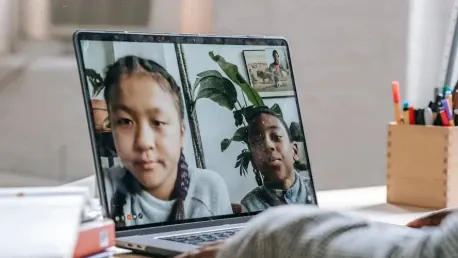In an era where children are extensively engaged with the digital world, the need to protect them from online dangers has never been more pressing. The Kids Online Safety Act is a legislative measure designed specifically to address these concerns, aimed at mitigating various risks such as encounters with sexual predators, cyberbullying, and exposure to harmful content. This legislative effort stems from increased anxiety among parents and lawmakers who worry about the negative impact that unregulated digital environments can have on minors. However, while the intention of creating a safer online space for children is widely supported, the act has sparked a significant debate centering around its potential implications for freedom of speech and expression on the internet.
Recognizing Both Sides of the Debate
On one hand, proponents of the Kids Online Safety Act argue that the legislation is a critical step toward safeguarding young users in a digital space fraught with dangers. They contend that social media platforms have become breeding grounds for a variety of online threats, making it imperative to introduce stringent guidelines and protective norms. The goal is to create a shield for vulnerable users who might otherwise fall prey to harmful activities or content. Advocates believe that without such measures, children will continue to be at significant risk, and online platforms must be held accountable for providing safer environments.
On the other hand, opponents of the act, including Amy Bos, the director of federal and state affairs at NetChoice, warn that the proposed legislation might end up doing more harm than good. Critics argue that the act could lead to over-censorship and infringe on individual rights and freedoms, potentially stifling free expression on the internet. NetChoice, which includes members like Amazon, Google, and X, suggests that while the act’s intention to protect children is commendable, its enforcement could have unintended consequences that threaten the very fabric of free speech. They emphasize that regulatory overreach could suppress diverse viewpoints and create a mono-cultural online environment, which would be detrimental to the democratic principles of open dialogue and free expression.
Navigating the Complexities
The debate around the Kids Online Safety Act reflects a broader dilemma: how to balance the need for safety with the imperative for freedom. Proponents see the act as a necessary intervention to protect minors from a host of online dangers, while critics worry about its implications for content moderation and individual freedoms. Both perspectives underscore the complexity of navigating online safety in a way that does not compromise fundamental rights.
In synthesizing these viewpoints, it becomes clear that any legislative action in this realm must be meticulously crafted to avoid unintended pitfalls. Lawmakers need to consider the specific mechanisms for implementing safety measures without falling into the trap of excessive regulation. One potential solution could be to incorporate adaptive guidelines that evolve with the changing digital landscape, ensuring that protective measures remain relevant and effective without overstepping boundaries.
Both sides of the argument agree on one fundamental point: protecting children online is an immutable objective. However, the methodology and execution of such measures must be carefully balanced to avoid compromising essential freedoms. This nuanced perspective suggests that any effective legislation will require ongoing dialogue among policymakers, tech companies, and civil rights organizations.
Striking a Balanced Approach
In an age where kids are deeply involved with the digital world, safeguarding them from online threats is more critical than ever. The Kids Online Safety Act aims to address these issues by reducing risks like encounters with sexual predators, cyberbullying, and exposure to harmful content. This legislation arises from growing concerns among parents and lawmakers about the dangers an unregulated digital environment can pose for minors. The objective of creating a safer online space for children has broad support; however, the act has ignited a substantial debate regarding its potential impact on freedom of speech and expression on the internet. Critics argue that while the law’s intent to protect minors is commendable, it may inadvertently lead to censorship and limit the free flow of information. Proponents, on the other hand, assert that the safety of children should be the top priority, even if it requires imposing certain restrictions. Finding the right balance between ensuring child safety online and preserving fundamental internet freedoms remains a challenging and complex issue.









